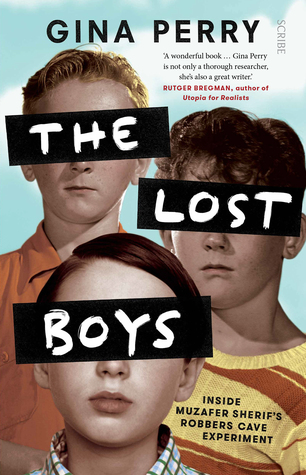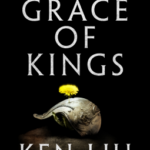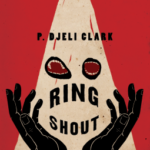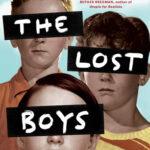
The Lost Boys: Inside Muzafer Sherif's Robbers Cave Experiment
by Gina Perry
Genres: History, Non-fiction, SciencePages: 384
Rating:

Synopsis:The fascinating true story of one of the most controversial psychological experiments of the modern era — a real-life Lord of the Flies.
Competition. Prejudice. Discrimination. Conflict.
In 1954, a group of boys attended a remote summer camp where they were split into two groups, and encouraged to bully, harass, and demonise each other. The results would make history as one of social psychology’s classic — and most controversial — studies: the Robbers Cave experiment.
Conducted at the height of the Cold War, officially the experiment had a happy ending: the boys reconciled, and psychologist Muzafer Sherif demonstrated that while hatred and violence are powerful forces, so too are cooperation and harmony. Today it is proffered as proof that under the right conditions warring groups can make peace. Yet the true story of the experiments is far more complex, and more chilling.
In The Lost Boys, Gina Perry explores the experiment and its consequences, tracing the story of Sherif, a troubled outsider who struggled to craft an experiment that would vanquish his personal demons. Drawing on archival material and new interviews, Perry pieces together a story of drama, mutiny, and intrigue that has never been told before.
I really enjoyed Gina Perry’s book about Stanley Milgram’s most famous experiments, Behind the Shock Machine. It shook up the received wisdom about Milgram, and made it clear that he interfered with the data he was presenting, cherry-picked what he wanted to share in order to make his own interpretation inevitable, etc. It’s a book that’s stuck with me, though it’s been a few years since I read it now.
So I was eager to dig into The Lost Boys, which discusses the experiments on groups of young boys made by Muzafer Sherif, designed to play out his theories about how groups can turn on one another and then be reconciled. The book discusses these theories, and then goes off into trying to understand Sherif himself and where these theories came from.
It never manages to be as surprising and illuminating as Behind the Shock Machine, though I did find it interesting, and I think that’s because Sherif’s conclusions are less well-known. I knew about Stanley Milgram’s work like it was in the air (bearing in mind of course that I’m a particular kind of voracious reader and learner), and his work is so well known in the field, so shaking it up makes a real buzz. In this case, less so, and it’s less shocking to find that an experimenter we’re consistently shown manipulating his subjects to get the results he wants was, well, manipulating his results to get what he wanted. That’s apparent early, so there’s no shock going into the deep-dive. Muzafer Sherif would have liked to believe in his own mythology, but for my money he was no Milgram.
It all comes out as a somewhat uncertain book, leaving Perry ambivalent about how to interpret the impacts of the studies on the lives of the participants. She suggests that it was formative for them, that the studies were unethical, but it all comes out much more muted than her conclusions in Behind the Shock Machine.
I’m glad I read it, but my worldview hasn’t been upended.
Rating: 3/5



